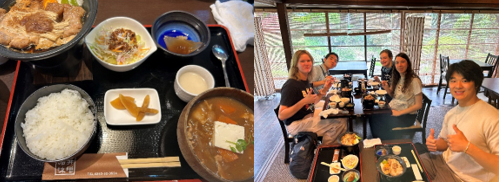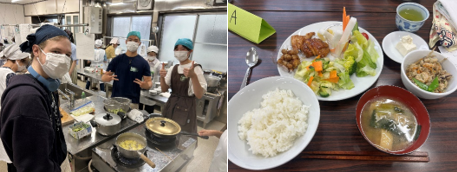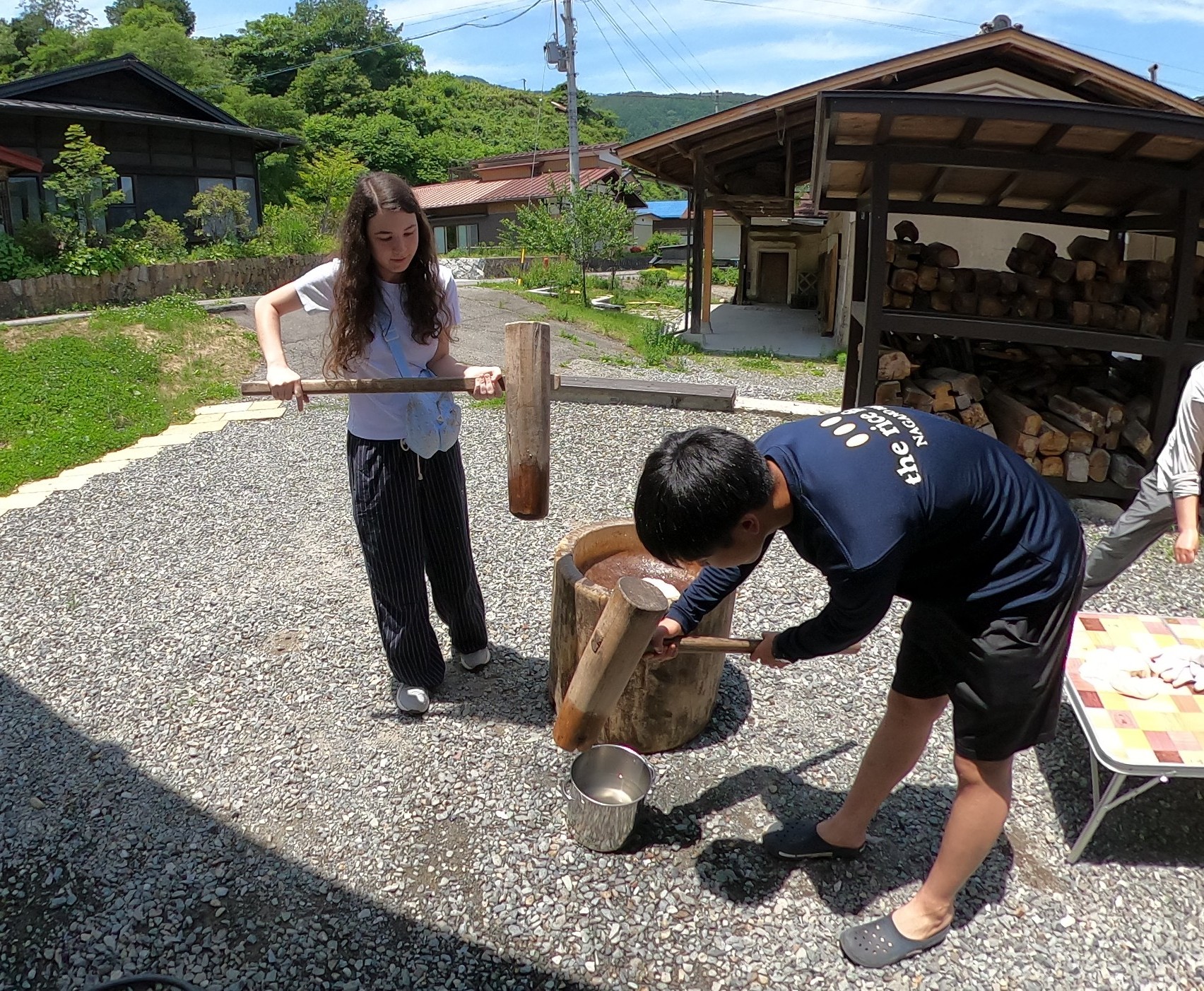Report on the two-week exchange program with CSUS students, traveling and learning about Shinshu's food and environmental sustainability.
The brand-new internship program initiative launched by Shinshu University has finally been launched and has had the pleasure of testing it out with its partnered institution: California State University Sacramento (CSUS) where three students from CSUS and the collaboration of 6 other Shinshu University students explore different parts of the Shinshu area such as Matsumoto. Nagano, and Ina. This program aims to explore Shinshu's food system and sustainability practices through various cross-cultural experiences and hands-on
experiences.
 The program led by Associate Professor Hamano, has been carefully planned out with locations in mind to first explore the various fermented foods of Shinshu. SU Students acted as supporters as they provided aid for the CSUS students to the different locations, while some were not always available there was always at least one supporter providing aid on each day with an activity. The program's first activity started with a visit to Ishii-Miso, a local miso factory in Matsumoto. Here they would learn about Ishii-Miso's traditional miso making practices, their production, and the benefits of miso. The following day they would go up to Nagano City and visit one of the largest producers of miso: Marukome Miso and experience the differences of a large producer versus a local producer. The students would record their findings on the differences of the miso produces from their soybean sourcing and their production methods.
The program led by Associate Professor Hamano, has been carefully planned out with locations in mind to first explore the various fermented foods of Shinshu. SU Students acted as supporters as they provided aid for the CSUS students to the different locations, while some were not always available there was always at least one supporter providing aid on each day with an activity. The program's first activity started with a visit to Ishii-Miso, a local miso factory in Matsumoto. Here they would learn about Ishii-Miso's traditional miso making practices, their production, and the benefits of miso. The following day they would go up to Nagano City and visit one of the largest producers of miso: Marukome Miso and experience the differences of a large producer versus a local producer. The students would record their findings on the differences of the miso produces from their soybean sourcing and their production methods.

This was followed with a visit to Yamanouchi-Minami Primary School, where their curriculum is known for their food sustainability practices. Here the Sac State students had the opportunity to experience a Japanese school lunch I how they specially prepare their meals and learn different etiquettes as opposed to their home countries. After a lunch the students join a 4th grade class in a tofu making practical. Here they got to learn about the creation process of tofu, how the school utilizes locally grown soy beans to create their tofu. They learn by first blending over-night-soaked beans and creating a mash called "Okara". They would then have fun taking turns squeezing soymilk out from the "Okara". The students were also informed that Okara can be made into a side dish so virtually nothing is wasted. That soymilk would then be turned into tofu. After making tofu the students got to enjoy the fruits of their labor by eating what they've created, though there were some failed attempts it turned out to be a great experience on how to utilize locally grown products and what to do with what would be considered waste products such as "Okara".
As mentioned before, the students would take part in practical activities such as cooking with local communities. The cooking practical held at Tomono-Kai involved the collaboration of a local women's group where they spend time researching nutritionally balanced meals, share their finding towards not only to ICL Project A-1 students, but with Professor Hamano's agricultural class in where they have hands on cooking practice in preparing delicious meals. After the cooking practical, the women took their time sharing their findings of what the ideal nutritionally balanced meal should be and the benefits of its cost-effective practices.

The most substantial activity was the two days stay at Wakka Agri. The students had the opportunity in learning about Japan's farming practices and situation regarding agriculture. They would also have the chance to have hands on practice planting rice seedlings in the rice paddies. The following day they would experience the process of making mochi from steaming the rice, pounding it, and then coating them in delicious seasonings such as kinako and azuki.
On the 20th the students and supporters would come together and form groups discussing their findings throughout the two-week program. Here they would collaborate amongst each other about Japan's current food and environment sustainability situation and compare it with their home country's situation creating a presentation providing their ideas and opinions on what they would change for the betterment of not only Japan's future but their own. This project looks to be a success in Intercultural Collaborative Learning as students international and domestic were able to work together, communicate and experience different cultures.
-----
Details:
June 7th (Sat.) - 21st (Sat.)
Language: English and Japanese
Theme: Sustainable Food and Environment in Shinshu
Activity Schedule:
6/7 - Program Guidance
6/9 - Ishii-Miso Factory
6/10 - Wasabi Farm
6/11 - Zenkoji Tour + Marukome Miso Factory
6/12 - Yamanouchi-Minami Primary School
6/13 - Nature Education Park & Forest Trekking
6/14 - Cooking Practical at Tomono-Kai
6/16 - Kiso Traditional Crafts
6/17-19 - Wakka Aggri
6/20 - Presentation Preparation
6/21 - Presentation Day
-----
Texed by Student Supporter: J


